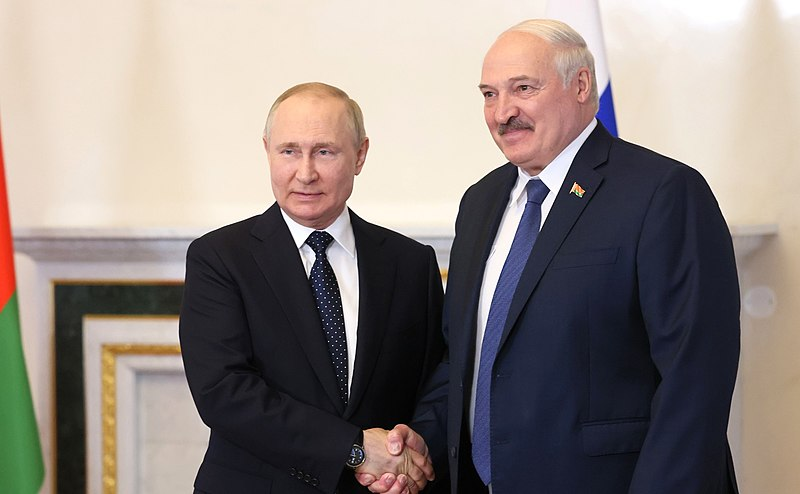Nuclear Weapons in Belarus: A Strategic Factor Amplifying Moscow’s Influence on Minsk’s Policy
 The situation got worse
The situation got worse

Nuclear weapons in Belarus, along with the BelNPP and Russian energy supplies, are the most important strategic factors allowing Moscow to exert a decisive influence on Minsk’s policy in the foreseeable future.
Russia has begun to implement plans to deploy nuclear weapons (NW) in Belarus. On May 25th, the defence ministers of the two countries, Sergei Shoigu and Viktor Khrenin, signed “documents defining the procedure for keeping Russian non-strategic nuclear weapons in a special storage facility on the territory of the Republic of Belarus”. Shoigu argues that this initiative complies with “all existing international legal obligations” and stressed that stationing non-strategic nuclear weapons in Belarus does not transfer control to Minsk.
Lukashenka suggested that countries wishing to have nuclear weapons join an alliance with Minsk and Moscow, i.e., in the Union State. He made this statement in an interview with the program “Moscow. Kremlin. Putin”, a fragment of which was published in his Telegram channel by its presenter Pavel Zarubin. It is not easy to establish on what day and at what exact moment Lukashenka made this suggestion.
On May 24-25th, Lukashenka paid a working visit to Moscow, where he took part in Eurasian Economic Union events, and then met with Putin. With the exception of some generalised statements, the details of the meeting were not disclosed. Most likely, the negotiators themselves are not aware of them. The previous meeting between Lukashenka and Putin, took place on May 9th in Moscow and was timed to coincide with the celebration of Victory in the Second World War. Lukashenka was apparently summoned to Moscow to participate in this event, but appeared quite ill.
According to ex-presidential candidate Valery Tsepkalo, after a closed meeting with Putin, Lukashenka was taken to hospital in critical condition, where “blood purification procedures” were carried out. Lukashenka’s condition was classified as unsuitable for travel and efforts to save the Belarusian dictator were aimed at dispelling speculation about poisoning by the Kremlin.
Nuclear weapons in Belarus are one of the most important strategic factors, which, along with the Belarusian NPP and Russian energy supplies, allows Moscow to exert a decisive influence on Minsk’s policy. Regardless of who will take Lukashenka’s place, this will be the legacy of his tenure as president of the country. In terms of independence and sovereignty, Lukashenka can be considered the worst head of state in the post-Soviet space.
Subscribe to our newsletter




Situation in Belarus
Constitutional referendum: main consequences


 Video
Video
How to count the political prisoners: are the new criteria needed?


 Video
Video
Paternalism In Decline, Belarusian Euroscepticism, And The Influence Of Russia


 Video
Video












